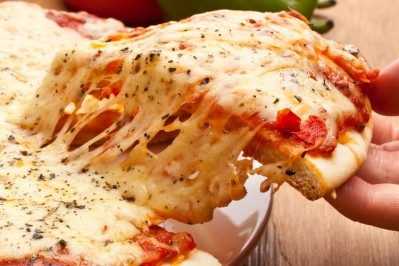Dairy Dialog podcast 141: DMI, IFF, U.S. Dairy Export Council

This week we have conversations with Kristi Saitama, vice president, global ingredients marketing, and Terri Rexroat, vice president, ingredient marketing at USDEC; Anne Marie Splitstone, senior vice president global innovation partnerships at Dairy Management Inc.; and systems and texturant expert Linda Dunning from IFF.
We also have our weekly look at the global dairy markets with Liam Fenton at StoneX.
Dairy proteins - unsung heroes of global innovation
Tracking data from Innova Markets Insights’ Innova Database reveals the number of new global food and beverage product introductions made with whey proteins and with milk proteins both set new records in 2020.
As further outlined in a new infographic unveiled by the U.S. Dairy Export Council (USDEC), a record 7,409 whey protein products were introduced around the world in 2020, with annual launches nearly doubling from 2015. This represents a double-digit (13.9%) compound annual growth rate (CAGR) from 2015 to 2020, which USDEC said shows food formulators are tapping into these ingredients to fuel innovations that deliver on consumer desires.
Milk protein product launches also smashed prior year records, reaching 9,413 products in 2020, a 3.7% CAGR from 2015 to 2020. Aggregated dairy protein product introductions outpaced plant proteins in 2020 by over 3,000 products (17,652 dairy proteins, 14,584 plant proteins), maintaining a consistent lead held for the past decade.
“This impressive growth in whey, milk and dairy protein introductions aligns with other Innova Market Insights’ survey data showing strong consumer demand for proteins from both animal and plant based sources,” said Lu Ann Williams, global insights director, Innova Market Insights.
“Innovation potential remains bright across global markets and diverse product categories for these versatile ingredients from cow’s milk, offering formulators the sweet spot of nutritionally high-quality proteins that complement today’s plant forward lifestyles.”
The number of whey and milk protein products carrying a high or source of protein claim is rising in tandem with the growth in new product launches. Sixty per cent of tracked whey protein and 28% of milk protein product introductions carried a high or source of protein claim on-pack in 2020.
“Consumer interest in protein for health is no longer just in Western markets where the protein trend started but gaining momentum and driving new product introductions around the world,” said Kristi Saitama, vice president, global ingredients marketing for USDEC.
“Launch activity is likely to accelerate in coming years as manufacturers in Asian, Latin American, Middle Eastern and African countries further discover and seek out whey and milk protein’s powerhouse nutritional package to develop local-friendly products supporting consumer health and wellness goals, such as fitness, weight management and healthy aging.”
More than one third (35.4%) of whey protein new product introductions in 2020 were outside of Europe and North America, with one in five (21.2%) launches in Asia. The top five markets — US, China, Germany, UK and Brazil — accounted for 40% of tracked 2020 introductions. On a country by country basis, the US accounted for 16% of the 2020 whey protein food and beverage launches followed by China (8%), Germany (6.5%), the UK (5.6%) and Brazil (3.8%).
Category wise, sports nutrition led with a 36.9% share of total whey protein product introductions last year followed by baby and toddlers (27.4%), dairy (6.4%), cereals (6.1%) and bakery (5.8%). Additional categories included desserts and ice cream (4.3%), snacks (2.4%), confectionery (2.2%), ready meals and side dishes (2.2%) and soft drinks (1.9%), reflecting broadening performance strength across both traditional and novel end-use applications.
“US whey and milk protein ingredients deliver on formulator goals to boost protein content in health and wellness product offerings while providing the right flavor, nutrition, functionality, and clean labels in ways where newer proteins may struggle,” Saitama said.
“And with a long-legacy of environmental stewardship and ambitious environmental goals to become carbon neutral or better by 2050, global manufacturers can count on the US dairy community for sustainable ingredient and innovation solutions that are healthful for both the body and the planet.”
Checkoff partners with Middle East Domino’s to push cheese exports
Dairy Management Inc. (DMI) has entered a partnership with Alamar Foods Company, which owns 455 Domino’s stores in the Middle East, North Africa and Pakistan.
DMI’s partnership will focus on about 300 locations in Saudi Arabia and the United Arab Emirates, with a goal of increasing US cheese sales.
Amy Wagner, DMI executive vice president of global innovation partnerships, said the checkoff will offer technical expertise on menu development and marketing support to Alamar.
“This is an extension of an already strong Domino’s partnership and a tremendous opportunity because pizza is a lesser developed category in the Middle East,” Wagner said.
“As we looked to increase dairy sales internationally, we knew American cuisine is very popular there and pizza is loved. We see an upside to grow even more pizza sales that will use US cheese through innovation and marketing support from DMI.”
This is DMI’s first venture into the Middle East with a partner, but it’s not the checkoff’s first in the international marketplace. In 2019, DMI began a partnership with Domino’s Japan where the volume of U.S.-sourced cheese has doubled since its launch, Wagner said.
“These partnerships illustrate the importance of export growth to US dairy and how our work supports the US Dairy Export Council’s efforts to diversify growth into new regions of the world,” said Pennsylvania dairy farmer and DMI chair Marilyn Hershey.
While DMI is building its international presence, Domino’s has long been established outside of the US. It is the top pizza company worldwide with 11,000 of its 17,000 stores in 90-plus international markets. Domino’s had global retail sales of more than $14.3bn in 2019, split almost evenly between its domestic and international businesses.
“As a global pizza brand, we love nothing more than selling delicious pizzas with lots of cheese to our customers worldwide,” said Joe Jordan, executive vice president of Domino’s International.
“Connecting DMI with our master franchisee, Alamar Foods, provides a great opportunity to deliver even more dairy goodness to pizza menus around the world.”
Wagner said, “We have aspirations to have an even larger partnership presence throughout the Middle East and Africa where populations are increasing. We’re beginning with two very strong markets in Saudi Arabia and the UAE.”
Locust bean gum prices rise – IFF has solutions
The price of locust bean gum, an ingredient used in cream cheese, ice cream and other dairy and dairy alternative products, has more than doubled in the past year.
It has a relatively small geographical range, and is grown in Spain, Morocco, Portugal and Italy, which means any issues in supply can’t be easily addressed.
IFF’s systems business development manager Linda Dunning said locust bean gum has many advantages: it can prevent ice crystal formation, provides viscosity, and reduces syneresis, as well as improving mouthfeel.
However, in spite of these challenges, IFF, which provides ingredient solutions for a whole range of finished products, said it has been able to help its customers by finding ways to replace locust bean gum with other solutions that are also clean label and recognizable on labels to consumers.












